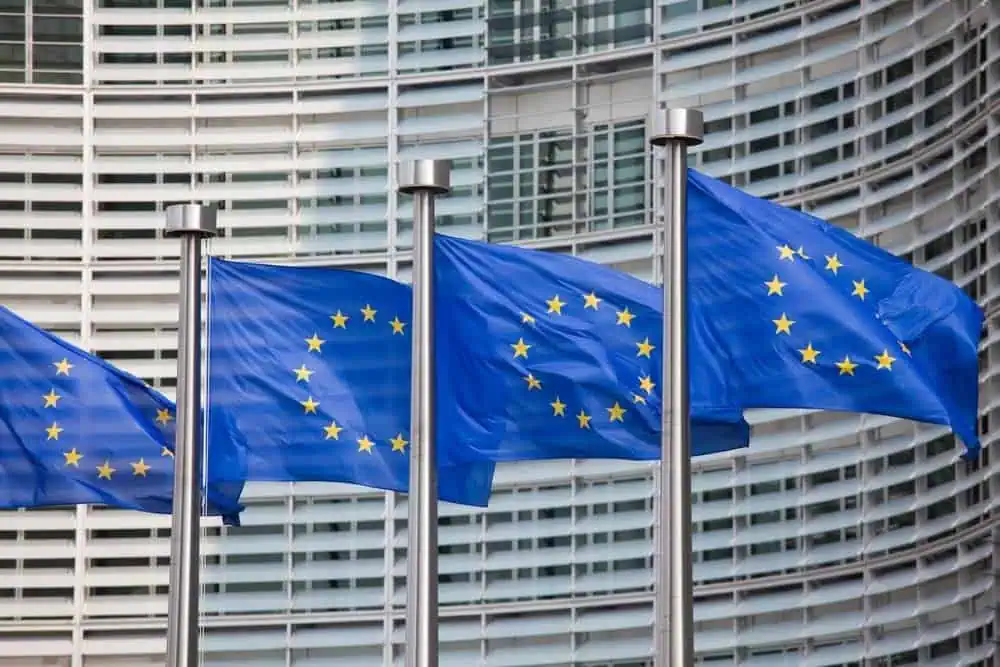More than 200 small businesses stopped trading on 31 December due to new EU VAT legislation on digital products. Most of the businesses affected are led by women.
While aimed at curbing tax dodging by global giants like Amazon, the new regulations are unintentionally causing havoc for the smallest businesses. Digital micro-businesses with a turnover below the UK VAT threshold of £81,000 are now expected to register and collect VAT for their sales to customers in other EU states.
Those affected have mounted a powerful campaign and there has been a veritable forest of blog posts written and new resources produced to help businesses to cope.
Here is our guide through the thicket to the most useful and concise help and information out there. Please add any other suggestions to the comments section at the end of the article.
How the new EU VAT rules and MOSS will affect you
If you think you may be affected by the new EU VAT rules, start with this concise and entertaining video from Crunch Accounting.
See the official guidance from HMRC to be clear if and how you are affected and what you need to do.
The Campaign
Campaigning businesses have already won significant concessions. HMRC has agreed that UK based businesses can keep the UK VAT threshold for domestic sales. As an interim measure, they have also agreed to accept simpler purchaser information until the end of June 2015. Until then you can use the information provided by your payment processor (PayPal or equivalent) as evidence for proof of place of supply.
The Campaign for a fair and reasonable threshold continues at an EU level. Join over 15,000 others and sign it here. For more details of the Campaign see the EUVATAction site or join the discussion on the Facebook group.
News and debate
In addition to the EUVATAction site, other good sources for latest news updates are BusinessZone, who have created a #VATMOSS update section, and Enterprise Nation. Also please see this epic and very popular post on EU VAT from our regular contributor Rosie Slosek.
Resources
WordPress plugins. If you sell online via a WordPress website, WooCommerce have produced a free plugin to assist in achieving compliance with the new EU VAT regime. A list of other useful plugins is available here.
Some WordPress membership plugins are already compliant. Sarah Arrow of Sarkemedia is maintaining a list.
Rachel Andrew is coordinating a list of third party technical solutions, including:
Intermediaries EU VAT compliant sales platforms for digital products. If you sell through those platforms you won’t need to register for VAT. The platform makes the sale and pays you a royalty or cut of profits.
Sales and Delivery Services Software – to enable VAT registered businesses to comply with the new regulations.
APIs and other services Add-ons that may be able to help you develop your own solution, for example by adapting Stripe payment services, with Quaderno, to meet the new regulations.
Simple work-arounds
Depending on your situation, it may be worth considering if there is a more straightforward solution. The following are some examples of what other businesses have done. If you are at all unsure talk to HMRC and ask them to send written confirmation of any advice they give.
There are four types of work-around.
1) Restrict sales to the UK and non-EU states.
2) De-digitise.
Some sites have set-up a two track system. UK and non-EU customers go through the usual digital system. Those from EU states are treated differently. Their product may be emailed directly and as a result the transaction no longer fits the definition of a digital download.
3) Package digital with non-digital services.
Online training provider Simon Dunant outlines how he has restructured his business with a live chat room and webinars. Another business reported that they were advised by HMRC that their membership site is not VAT eligible because, in addition to training videos, members are also able to access personalised training via (non automated) email and a dedicated members only Facebook group.
4) Sell through a marketplace.
Ironically many micro-businesses will find themselves pushed to sell through Amazon and other large platforms. Many of those platforms are however not yet geared up for the new regulations. BusinessZone is running an ongoing update on the position of many of those platforms including etsy, Folksy and notonthehighstreet.com
None of those solutions is ideal for the kitchen table businesses that are hardest hit.
We’ll be glad to see the big online firms pay their fair share of sales tax in the countries where they are doing business. But at the same time, there’s also a need for a more sensible international approach to VAT for the smallest businesses. And it’s not just an issue for digital businesses. Those rules are set to be extended to other types of business in 2016.
Prowess fully supports the demands of the EUVATAction campaign. Sign the petition and get involved here.


I think the SEO business has got a bad reputation from the amount of cowboys
and Indian companies around
Shared on Reddit, it will be useful to people over there!
I have had a lot of trouble researching information on based business, happy I discovered your
site though…so practical
I have added you in my weekly website bookmarks, keep up the interesting work